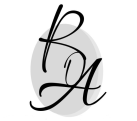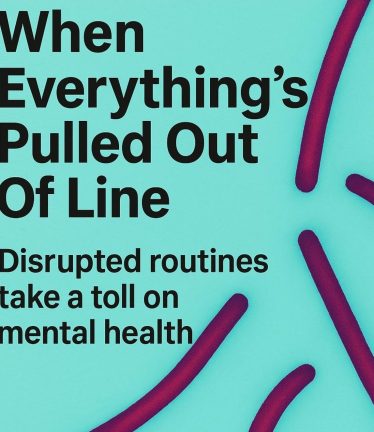Image: "The Break in the Line" (2025), created by Jenny McClymont. Used with permission. All rights reserved.
We don't always snap. Sometimes, we start bending.
One line at a time, work, sleep, focus, peace, drawn further apart from each other until we don't quite recognise the shape of our days. Nothing's gone dramatically wrong, but nothing feels quite right either. We wake up inside what looks like an ordinary routine and wonder, 'Where did I go?'
In my practice and my life, I keep meeting people who say:
I'm functioning, but I'm not fine.
I feel like I'm slowly disappearing.
I'm tired of being tired.
They are not burnt out in the loud, dramatic way we used to picture. They are quietly, constantly stretched—trying to hold together work, emotions, finances, purpose, and identity while pretending to be OK. And this pressure is now everywhere, understated but relentless.
A Mental Health Crisis Hidden in Plain Sight
- Over 85% of UK employees experience symptoms of burnout.
- More than 50% feel they can't safely talk about mental health at work.
- Young adults report the highest anxiety levels ever recorded, often linked to instability, job insecurity, and social isolation.
And yet we're told to "keep going," "stay productive," and "stay positive." When you're quietly breaking, these instructions feel like denial.
This is what inspired the image above: lines that should flow but instead are pulled and twisted, still connected but no longer whole.
Pause. What if you didn't need to hold it all?
Sometimes, healing isn't about fixing what's broken. It's about acknowledging what hurts.
It's the moment you let yourself say:
This is too much.
I need rest.
I miss who I was before I got this tired.
Therapy doesn't begin with answers. It starts with presence, someone beside you who sees you as you are, not as you're trying to be.
Gentle Reminders for Those Feeling the Strain
- You are not your output
- Productivity is not proof of your worth. Your rest matters as much as your results.
- It's OK to name the quiet crisis
- You don't need to collapse to justify help. If you're struggling, that's enough.
- Healing isn't always dramatic
- Sometimes, it's a sigh, a pause, a long breath. That's where recovery starts.
- Let someone witness you
- Not fix. Just witness. Being seen is often the first step to being well.
- You haven't failed
- You've adapted. You've coped. And now you're allowed to want something gentler.
Final Reflection
If your inner lines feel out of place, misaligned, broken, stretched, you are not alone. You are not broken. You are responding to a world that is often out of sync with what human beings need.
So, pause.
Soften.
Step back into your rhythm, however slowly.
Let the lines blur and reform on their terms.
Because you were never meant to be a machine.
Reference Sources
Reed. (2024, June 10). 85% of workforce feel burnt out and exhausted. The Times. Retrieved from https://www.thetimes.co.uk/article/85-percent-workforce-burnout-mental-health-reed-pvcqwt3l3
CIPD. (2023, October 12). Almost half of UK employees uncomfortable discussing mental health at work. People Management. Retrieved from https://www.peoplemanagement.co.uk/article/1743062/half-uk-employees-uncomfortable-discussing-mental-health-at-work

